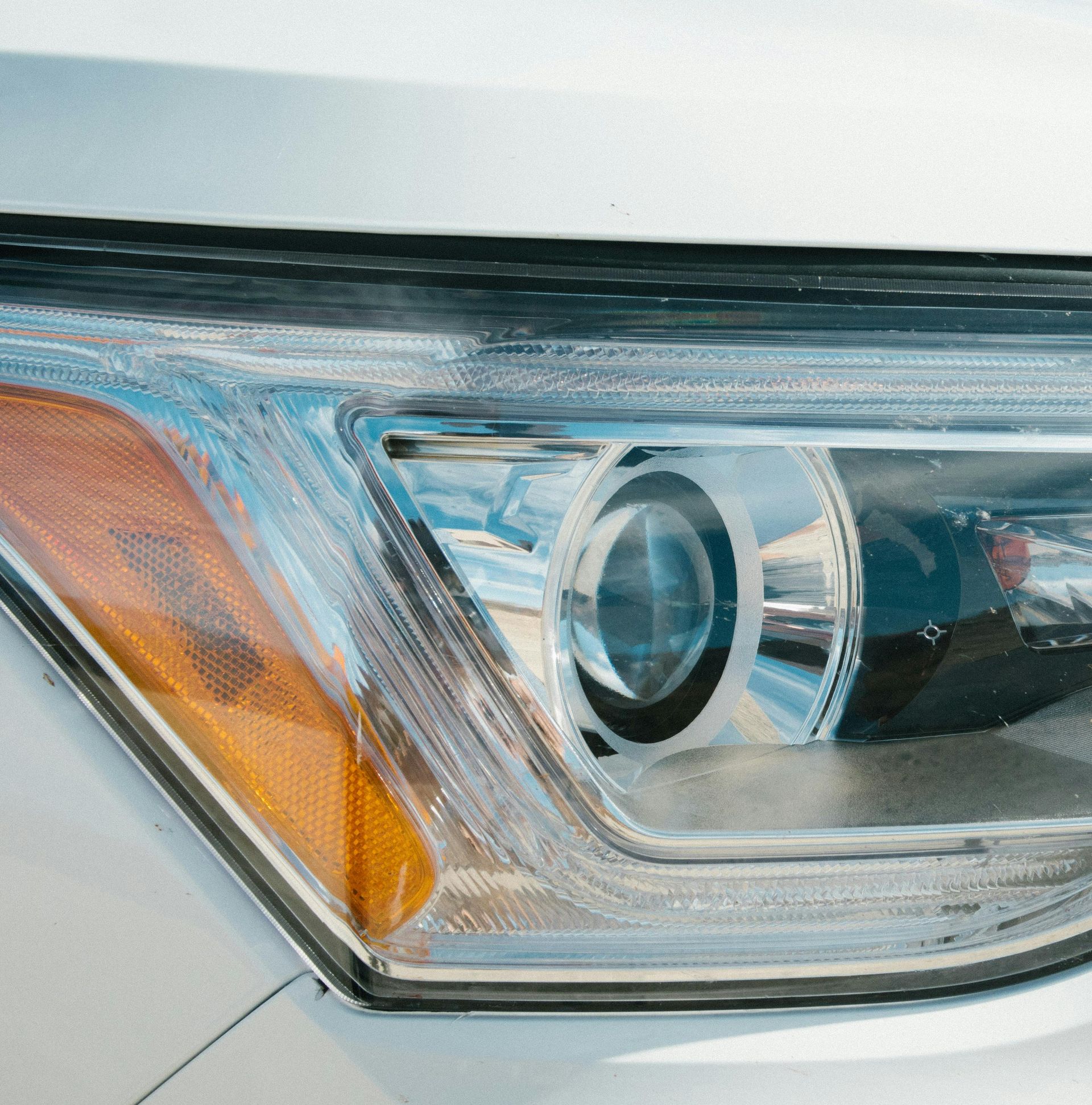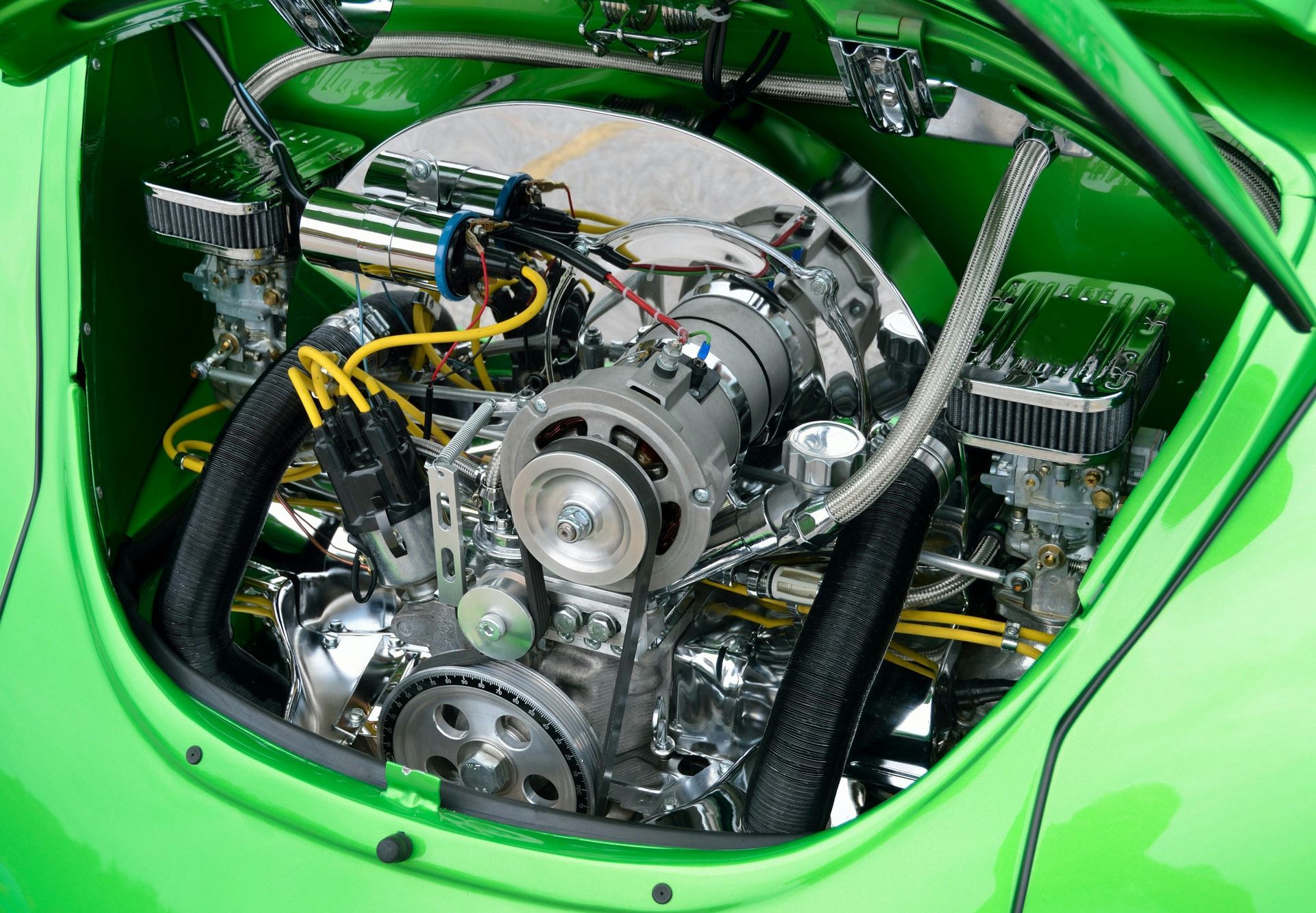Synthetic vs. Conventional Oil: Which Is Right for Your Car?
Standing in the auto parts aisle or talking to your mechanic, you've probably faced the choice: synthetic or conventional oil? The price difference is obvious, but is synthetic oil worth the extra cost? The answer depends on your car, your driving habits, and local conditions here in Eureka. Understanding the differences can help you make the right choice for your vehicle and potentially save money in the long run.
What Is Conventional Oil?
The Basics Conventional oil comes directly from crude oil that's been refined and processed. It's been the standard motor oil for decades and still does a good job protecting most engines under normal driving conditions.
How It Works Conventional oil contains natural lubricants that reduce friction between moving engine parts. It also carries away heat and helps keep your engine clean by suspending dirt and debris until your next oil change.
Cost Advantage The biggest advantage of conventional oil is price. It typically costs 30-50% less than synthetic oil, making it attractive for budget-conscious drivers or older vehicles with high mileage.
What Is Synthetic Oil?
Engineered Performance Synthetic oil is created in laboratories using chemically engineered base oils. These oils are designed to provide superior performance compared to conventional oil.
Molecular Precision Unlike conventional oil, which contains molecules of varying sizes, synthetic oil has uniformly sized molecules. This consistency allows it to flow better and provide more consistent protection.
Advanced Additives Synthetic oils contain sophisticated additive packages that help them perform better in extreme conditions and last longer between changes.
Key Differences That Matter in Eureka
Temperature Performance Eureka's cool, foggy mornings followed by warmer afternoons create temperature swings that affect oil performance. Synthetic oil flows better in cool temperatures, providing faster engine protection during those chilly morning startups.
Moisture Resistance Our coastal humidity can create condensation in engines, especially during short trips around town. Synthetic oil handles moisture better and is less likely to break down when exposed to water contamination.
Extended Protection Eureka's stop-and-go traffic during tourist season and frequent short trips to local businesses can be hard on conventional oil. Synthetic oil maintains its protective properties longer under these challenging conditions.
Performance Comparisons
Cold-Weather Starting During Eureka's cooler months, synthetic oil flows immediately when you start your car, while conventional oil may take longer to circulate. This means better protection for your engine during those crucial first moments after startup.
High-Temperature Stability While Eureka doesn't get extremely hot, synthetic oil remains stable at higher temperatures. This matters when you're driving up hills to Arcata or sitting in summer traffic with your air conditioning running.
Oxidation Resistance Exposure to oxygen breaks down oil over time. Synthetic oil resists oxidation better than conventional oil, maintaining its protective properties longer.
Viscosity Stability Oil thickness (viscosity) affects how well it protects your engine. Synthetic oil maintains consistent thickness better than conventional oil as it ages.
Cost Analysis: Initial vs. Long-Term
Upfront Costs Synthetic oil costs more initially – often $30-50 more per oil change than conventional oil. For many drivers, this price difference is the deciding factor.
Extended Change Intervals Many synthetic oils can go 7,500-10,000 miles between changes, compared to 3,000-5,000 miles for conventional oil. This extended interval can offset the higher initial cost.
Engine Protection Value Better engine protection can mean fewer repairs and longer engine life. While hard to quantify, this protection has real value, especially for newer or high-mileage vehicles.
Fuel Economy Benefits Some drivers report slightly better fuel economy with synthetic oil due to reduced friction. With gas prices fluctuating, even small improvements can add up over time.
Who Should Use Conventional Oil?
Older Vehicles Cars with over 100,000 miles, especially those that have always used conventional oil, may not benefit significantly from switching to synthetic. The engine seals might even be used to conventional oil's properties.
Infrequent Drivers If you drive less than 7,500 miles per year around Eureka and surrounding areas, you might not get the full benefit of synthetic oil's extended change intervals.
Budget Constraints If money is tight, conventional oil still provides adequate protection for most engines under normal driving conditions.
Older Engine Designs Some older engines were designed for conventional oil and may not benefit from synthetic's advanced properties.
Who Should Use Synthetic Oil?
Newer Vehicles Most vehicles manufactured after 2010 are designed with tighter tolerances that benefit from synthetic oil's superior flow and protection properties.
Extreme Driving Conditions If you frequently drive Highway 101 at high speeds, make many short trips around Eureka, or regularly drive in stop-and-go traffic, synthetic oil provides better protection.
Turbocharged Engines Turbo engines run hotter and work harder than naturally aspirated engines. Synthetic oil's heat resistance makes it essential for these powerplants.
Performance Vehicles Sports cars and high-performance engines benefit significantly from synthetic oil's superior protection and stability.
Eureka-Specific Considerations
Coastal Driving Conditions Salt air, humidity, and frequent temperature changes make synthetic oil's superior stability and moisture resistance valuable for Eureka drivers.
Short Trip Patterns Many Eureka residents make frequent short trips – to the grocery store, work downtown, or local businesses. These short trips don't allow engines to fully warm up, making synthetic oil's cold-flow properties beneficial.
Tourist Season Traffic During busy summer months, increased stop-and-go traffic puts extra stress on engines. Synthetic oil handles these conditions better than conventional oil.
Seasonal Weather Changes While mild, Eureka's seasonal variations still affect oil performance. Synthetic oil adapts better to these changes.
Synthetic Blend: The Middle Ground
What It Is Synthetic blend oil combines conventional and synthetic oils, offering some benefits of synthetic at a lower cost than full synthetic.
Performance Benefits Synthetic blends flow better than conventional oil and last longer, but don't offer the full protection of synthetic oil.
Cost Consideration Typically priced between conventional and full synthetic, blends can be a good compromise for drivers wanting some upgrade without full synthetic cost.
Best Applications Synthetic blends work well for drivers with moderate mileage who want better protection than conventional oil but don't need full synthetic performance.
Making the Right Choice for Your Vehicle
Check Your Owner's Manual Your manufacturer's recommendation should be your starting point. Some newer engines require synthetic oil for warranty coverage.
Consider Your Driving Habits Frequent short trips, high-speed highway driving, or extreme conditions favor synthetic oil. Normal commuting might be fine with conventional oil.
Evaluate Total Cost Factor in change intervals, not just the cost per oil change. Synthetic oil's longer intervals can make it cost-competitive with conventional oil.
Think Long-Term Consider how long you plan to keep your car. If you're keeping it for many years, synthetic oil's protection benefits become more valuable.
Common Myths About Oil Types
"Synthetic Oil Causes Leaks" Modern synthetic oils don't cause leaks in healthy engines. If switching to synthetic reveals a leak, the leak was already there.
"You Can't Switch Back" You can switch between oil types without problems. However, it's best to stick with one type for consistency.
"All Synthetic Oils Are the Same" Different brands and formulations offer varying levels of protection and performance. Quality matters even within synthetic oils.
Professional Recommendations
Get Expert Advice Your mechanic can evaluate your specific vehicle, driving conditions, and maintenance history to recommend the best oil type.
Regular Analysis Some shops offer oil analysis services that can help determine if you're getting the full benefit of synthetic oil.
Quality Matters Whether you choose conventional or synthetic, using quality oil and filters from reputable manufacturers is important.
Expert Oil Service in Eureka
Choosing between synthetic and conventional oil doesn't have to be confusing. The experienced technicians at Eureka Brake & Automotive can help you make the right choice based on your vehicle, driving habits, and budget.
We understand how Eureka's unique coastal climate and local driving conditions affect oil performance. Whether you're commuting on Highway 101, making frequent trips around Humboldt County, or dealing with our stop-and-go tourist traffic, we can recommend the oil type that will best protect your engine.
Our ASE-certified mechanics stay current with manufacturer recommendations and can help you balance cost and protection. We stock both high-quality conventional and synthetic oils, ensuring you get the right product for your vehicle's needs.
Located at 2002 2nd St in Eureka, we're open Monday through Friday, 7:30am to 5:00pm. Don't guess about what's best for your engine. Call us at (707) 200-7097 or book your oil change online today. Let our experts help you choose the right oil to keep your car running smoothly on Eureka's roads, whether you need budget-friendly conventional oil or high-performance synthetic protection.














